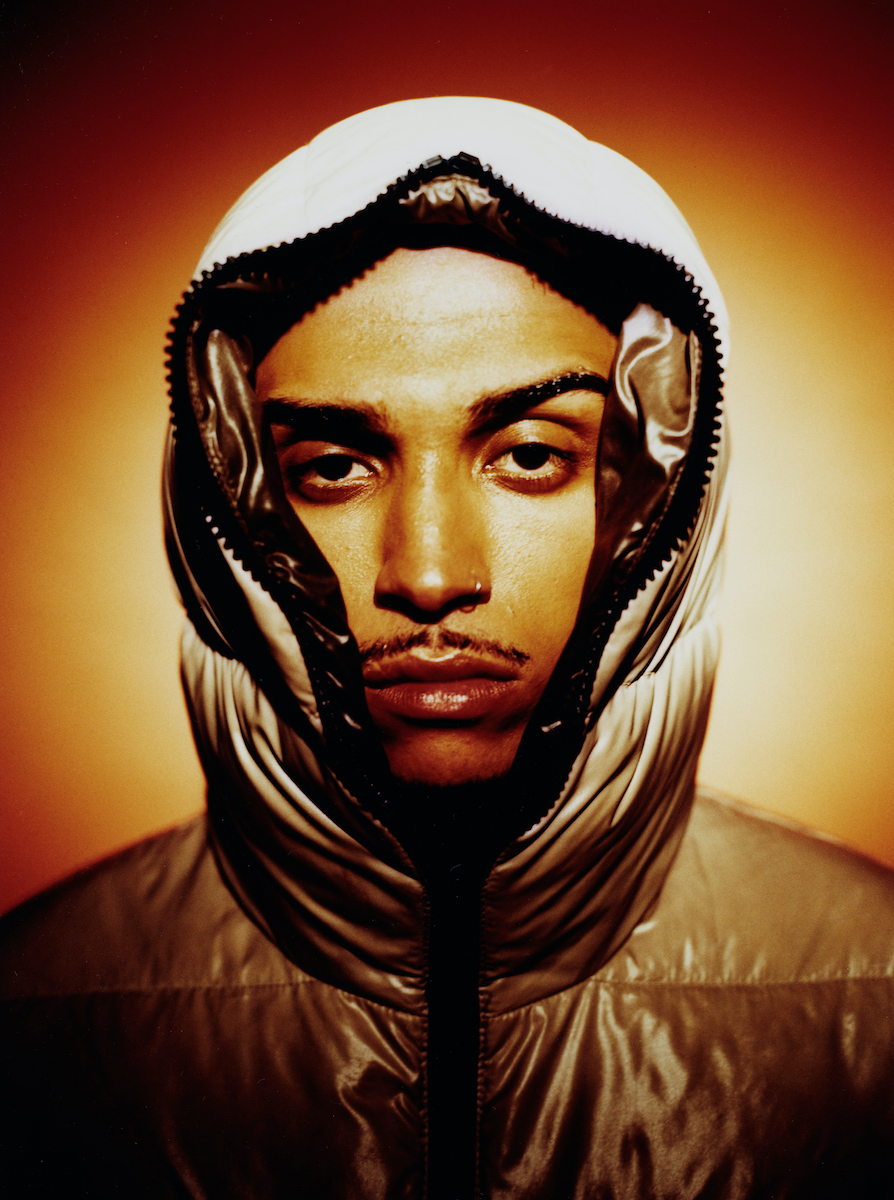Far From Helpless: Deyaz Interviewed
A multi-faceted alt-pop interloper, the insidious rise of Deyaz is shrouded in twilight revelation. Blending frank lyricism to ear-worm melodies that draw on a wide-open palette of colours and textures, his viral creativity truly stands alone.
– – –
[embedded content]
– – –
“I’m nocturnal as hell!” says multi-talented musician, producer and instrumentalist Deyaz, speaking of his current creative loop-cycle. Most nights he’s up making music until the ambrosial hours and sleeping off the rest of the day like a bad hangover. “I’ve suffocated myself with music since I was a child. I don’t really know anything else.” He pauses, lingering a second too long on his choice of words, sweetly poetic but with a hint of sadness.
This month, Deyaz releases his fourth single ‘Bleed’ in a string of releases under a new mixtape project, which is set to be released in full later this year. What is currently released of the EP (‘Mess,’ ‘Helpless’ and ‘Time’), is a collection of racing thoughts, rich and melancholic, accompanied by production that is, if anything, minimalist. Deyaz, in spite of his extensive classical music education, is careful to avoid discussing the project with anything close to pretension.
Inspired by the devil-may-care attitude of Kurt Cobain and the emotional output in everything Nirvana released – a cruel dichotomy that critics would never fully unravel, try they might – Deyaz too makes music that is at times hard to listen to, but that comes from a deeply personal and organic place. The intention behind the mixtape project he says, was to unravel his own thoughts around having issues with the person that you’re intimate with. “It’s confusion, but also complete understanding that you’re with someone because you feel passionately towards them,” he says, “all the while knowing the effect that is having is detrimental to your own sense of self.”
– – –

– – –
Deyaz grew up alternative and with little money, but galvanized his love of music by playing on his older brother’s guitar that he’d bought for a tenner, and left on his bedroom wall when he left home. “I wasn’t on very expensive stuff, but I was still very keen to use it, so I would make do with the shit I had.” A pencil and a rubber band became a makeshift capo, a two-pence coin a plectrum. “Trying to do sweep-picking and tapping on this awful classical guitar probably made it sound really bad, but the aspiration was there.”
Aspiration and a desire to be surrounded by other creative minds led Deyaz to embrace the classical-jazz music world. He was awarded a scholarship to the prestigious Guildhall Junior School for Jazz and would later attend ICMP for a few months, but found that with all the open-heartedness he gave to the classical-jazz music world, that world didn’t want to, or simply couldn’t embrace him back. “I spent so long building my own interpretation of what music meant to me, that by the time I went into a formal institution to learn, I wasn’t comfortable.”
Surrounded by trust fund babies who saw the world through a very different socioeconomic lens, he tells stories of kids threatened by talent formed out of a more organic and experimental place. “The students would complain to the teachers about me because I didn’t know how to sight read. Even though I was playing the pieces absolutely fine, they would get me thrown out of classes, saying that I wasn’t putting in the same amount of effort. That was my first experience in the classical-jazz world, so I thought, you know what? I’ll just learn it from afar.”
– – –

– – –
For a time after, he played as a drummer in the Camden punk circuit, learning from an older generation of musicians, and faking IDs in order to play in venues strict on age policy. “It was a big contributing factor as to why I couldn’t stay in my family household while wanting to get involved in music. It was a mutual agreement. I wanted to pursue music so badly, but the route I was going wasn’t very orthodox. In their eyes, I should have been through an educational system,” he says.
Having spent the majority of his youth in and out of music school, couch-surfing and busking in places in and around London, Deyaz dislikes the thought of settling down in one place for too long. What bothers him the most is the idea of confinement and what this could potentially do to his sense of freedom. “One thing I’ve always been in fear of is being involved in something that is detrimental to my freedom in music. I definitely back off if I feel confinement of any form.” Today he lives as somewhat of a nomad, defining home as wherever his music and his dogs are. He also believes in Angel numbers, seeing patterns of love and light that have guided him towards a path that in many respects, feels destined for him.
Deyaz’s younger years were formative in that they taught him some important life lessons: that a truly-seasoned instrumentalist doesn’t need gimmicks or pretention to hide behind, and that the hardest decisions are best made from the gut. “I’ve always made decisions on instinct. It’s definitely got me into some shit situations in my life, because I go with my gut on everything. It seems to have worked now, to a certain degree. I’m getting to do music full time, and honestly, that’s all I’ve ever wanted, really.”
– – –
[embedded content]
– – –
Words: Jessica Fynn
Photography: Jesse Crankson
Fashion: Connor Gaffe
– – –
